#Odontodactylus Scyllarus
Explore tagged Tumblr posts
Text
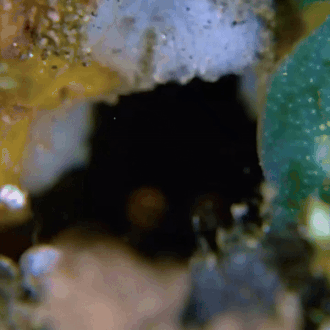
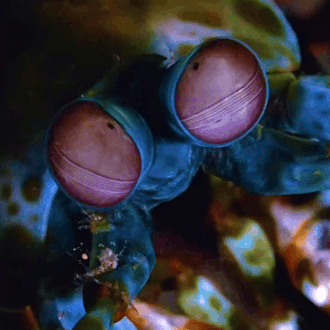
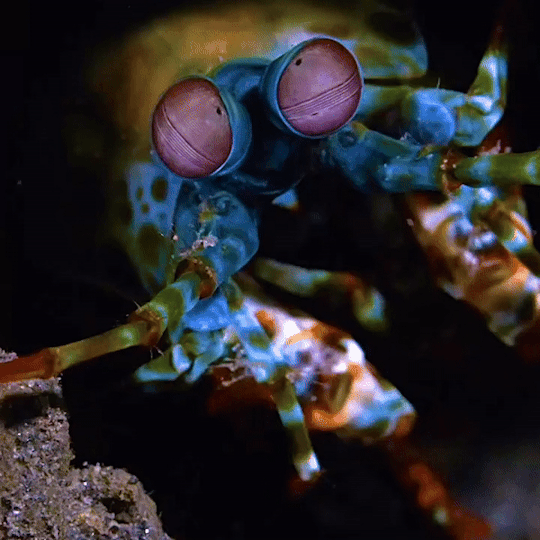
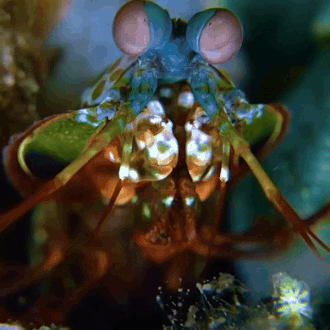
peacock mantis shrimp (odontodactylus scyllarus) | fab.aroundtheglobe on ig
#stim#mantis shrimp#sea creatures#stomatopods#sfw#blue#green#orange#purple#white#animals#crustaceans#marine life#shrimp#underwater#peacock mantis shrimp#odontodactylus scyllarus#ishy gifs#postish
1K notes
·
View notes
Text





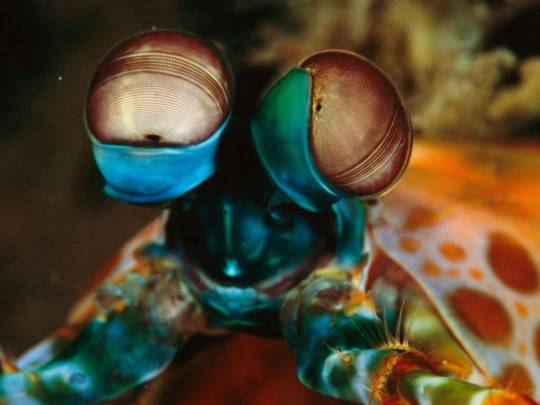











Креветка-богомол Павлиновая или рак-богомол (лат. Odontodactylus scyllarus).
Самцы креветки-богомола обладают очень яркой внешностью. Они переливаются всеми цветами радуги. Тело у них – ярко-зеленое, голова – голубая, передние конечности и антенны – ярко-красные или оранжевые. Самочки не такие пестрые. Чаще всего они имеют коричневый или оливковый окрас.Эти креветки могут достигать 30 сантиметров. Тело их сплющено и вытянуто.
Название «богомол» им приписали за способность мгновенно выбрасывать свои передние конечности. Такой же прием насекомое использует во время защиты от врагов или добывания пищи. По словам биолога Роя Колдуэлла, такой удар у богомола занимает всего 100 миллисекунд, это сравнимо с одним морганием глаза. Удар креветки-богомола в 50 раз быстрее!!! Это самое быстрое движение, на которое способны животные. Но самым удивительным у этого животного являются его глаза. Они имеют сферическую форму и поделены по центру параллельными линиями. Главное то, что они способны воспринимать и преобразовывать поляризованный свет, чего люди делать не могут. Кроме того, эти креветки имеют уникальное зрение, которое позволяет им видеть предметы в оптическом, инфракрасном и ультрафиолетовом диапазонах спектра. Это помогает им распознавать флуоресцентные метк�� на других креветках в качестве сигналов об опасности или как сигналы угрозы друг другу.
Креветки-богомолы не зря зовутся страшными названиями, вроде «раки-террористы» и «резатели пальцев». В их меню входят крабы, моллюски, улитки, черви, креветки и рыба. Более того, павлиновые креветки – единственные, кто способен полакомиться ядовитым синекольчатым осьминогом, яд которого может убить человека за 15 минут, а противоядия к нему не существует до сих пор.
Ареалом обитания этим красивых и необычных ракообразных является район Барьерного рифа в Австралии. Встречаются они на глубине 40 метров.Живут креветки в самодельных песчаных норках или в коралловых обломках. Длина этих нор может достигать 1 метра, а глубина доходить до 40 сантиметров. Для укрепления, ее стенки креветки покрывают кусочками раковин и частичками кораллов.
Peacock Mantis Shrimp or Mantis Shrimp (Latin: Odontodactylus scyllarus).
Male mantis shrimps have a very bright appearance. They shimmer with all the colors of the rainbow. Their body is bright green, their head is blue, their forelimbs and antennae are bright red or orange. Females are not so colorful. Most often, they have a brown or olive color. These shrimps can reach 30 centimeters. Their body is flattened and elongated.
The name "mantis" was attributed to them for the ability to instantly throw out their forelimbs. The insect uses the same technique when defending itself from enemies or getting food. According to biologist Roy Caldwell, such a strike by the mantis takes only 100 milliseconds, which is comparable to one blink of the eye. The strike of the mantis shrimp is 50 times faster!!! This is the fastest movement that animals are capable of. But the most amazing thing about this animal is its eyes. They are spherical and divided in the center by parallel lines. The main thing is that they are able to perceive and transform polarized light, which people cannot do. In addition, these shrimp have unique vision, which allows them to see objects in the optical, infrared and ultraviolet ranges of the spectrum. This helps them recognize fluorescent marks on other shrimp as signals of danger or as signals of a threat to each other.
It is not for nothing that mantis shrimp are called scary names, such as "terrorist shrimp" and "finger cutters". Their menu includes crabs, mollusks, snails, worms, shrimp and fish. Moreover, peacock shrimp are the only ones who can feast on the poisonous blue-ringed octopus, whose venom can kill a person in 15 minutes, and there is still no antidote to it.
The habitat of these beautiful and unusual crustaceans is the Barrier Reef area in Australia. They are found at a depth of 40 meters. The shrimp live in homemade sand burrows or in coral debris. The length of these burrows can reach 1 meter, and the depth can reach 40 centimeters. To strengthen it, the shrimp cover its walls with pieces of shells and coral particles.
Источник: /ianimal.ru/topics/krevetka-bogomol, /www.techinsider.ru /science/611573-samyy-bystryy-udar-v-okeane-v-chem-sekret-krevetki-bogomola/, //masterok. livejournal.com/1508581.html, //animals.pibig.info/27111-pavlinovaja-krevetka-bogomol.html, //t.me/+fxNu20lM26MwYzhi.
#video#animal video#nature#marine life#marine biology#aquatic animals#crustaceans#Odontodactylus scyllarus#Peacock Mantis Shrimp#mantis crab#underwater#ocean#reef#sea anemones#animal photography#nature aesthetic#видео#фауна#природнаякрасота#природа#океан#ракообразные#Креветка-богомол Павлиновая#рак-богомол#риф#актинии#анемон
182 notes
·
View notes
Text


Peacock mantis shrimp (Odontodactylus scyllarus)
Photos by sensoryecology
#Odontodactylus scyllarus#peacock mantis shrimp#nature#marine#marine life#ocean#sea#stomatopod#harlequin mantis shrimp#mantis shrimp#blue#colorful animals#animals#marine animals
48 notes
·
View notes
Text
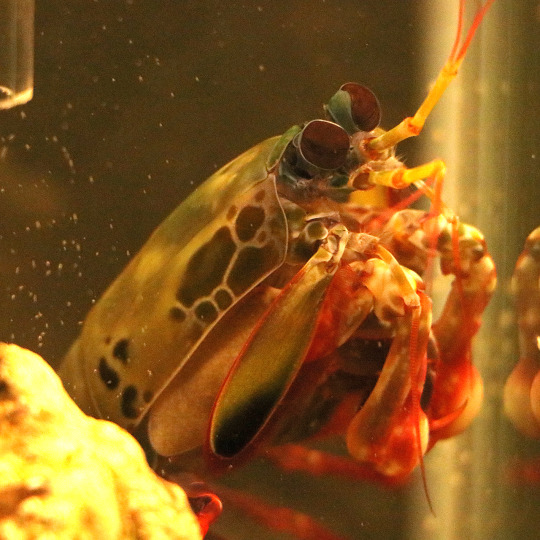
たまにパンチする油絵
鳥羽水族館
Mantis shrimp that punch like oil paintings.
Toba Aquarium
34 notes
·
View notes
Text
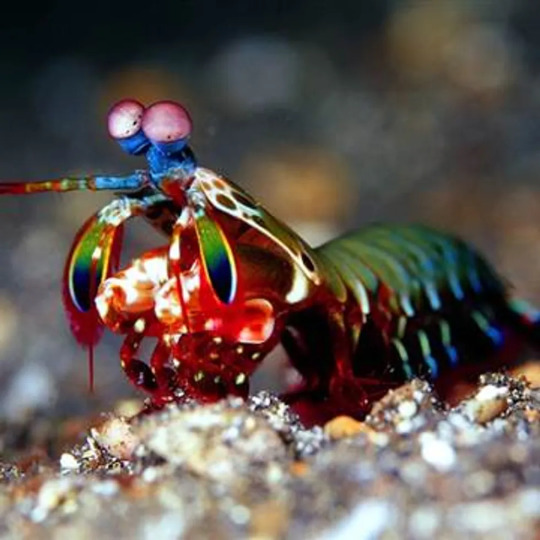
love this creature. the simp
#peacock mantis shrimp#odontodactylus scyllarus#mantis shrimp#shrimp#shrimp heaven now!#very beautiful very powerful
31 notes
·
View notes
Text
Odontodactylus scyllarus, o camarão-louva-a-deus-palhaço, também conhecido como lagosta-boxeadora é uma espécie de tamarutaca nativa do Indo-Pacífico, de Guam até a África Oriental. É fascinante tanto pela coloração quanto pelo perigo. São capazes de desferir um dos mais rápidos e violentos golpes do reino animal, seu soco fora registrado com uma velocidade de 80 km/h e aceleração similar a uma arma calibre 22
#animal#animals#animais#biologia#biology#odontodactylus scyllarus#tamarutaca#lacraia do mar#stomatopoda#crustacean#crustaceos#arthropods#artorpodes
7 notes
·
View notes
Note
27 💥💥💥💥💥💥💗💗💗💗💗💗💗!!!!!!
27- you can only invite 3 marine creatures to ur whalefall feast . who ?
okok so my first pick is the pacific sleeper shark !! they're one of the species that participate in the mobile scavenger phase, so it is very good for them . plus they look so stupid silly i love them !! one of our most mysterious creechures rahhhh
for the enrichment opportunity phase , i would like 2 go with the balloon worm !! theyre a polychaete that eats carrion , so whale falls can be beneficial to them :3 theyre a super odd looking sea worm and they go blobloblob and i keep misclassifying them as scyphozoans .... help ......
i do not know much about species that inhabit the final stages of whale falls , so BAM GET HIT W ANOTHER MOBILE SCAVENGER !!!!!!!!!!!!!!!!!!!!!!!!!!11!!11uhmmm hits u w the peacock mantis shrimp !! i dont know much about them tbh and im pretty sure they dont actually participate in whalefalls .....bbbut they look so so silly.....
images incoming !!
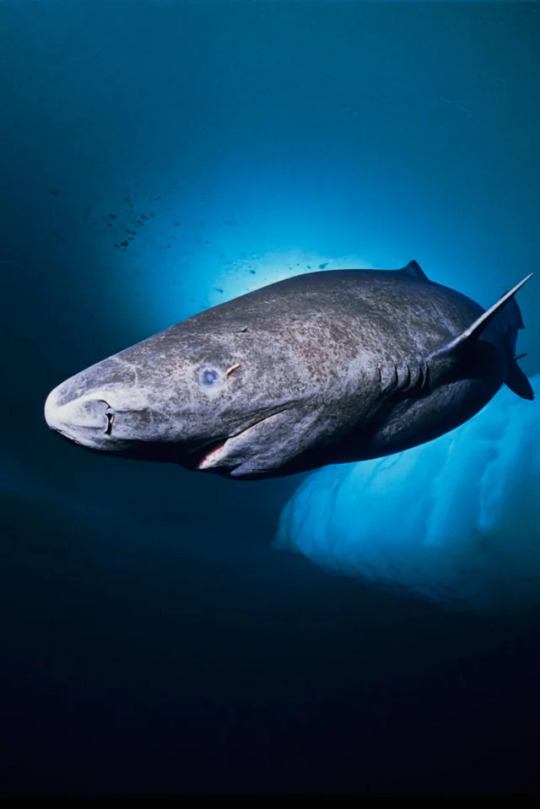
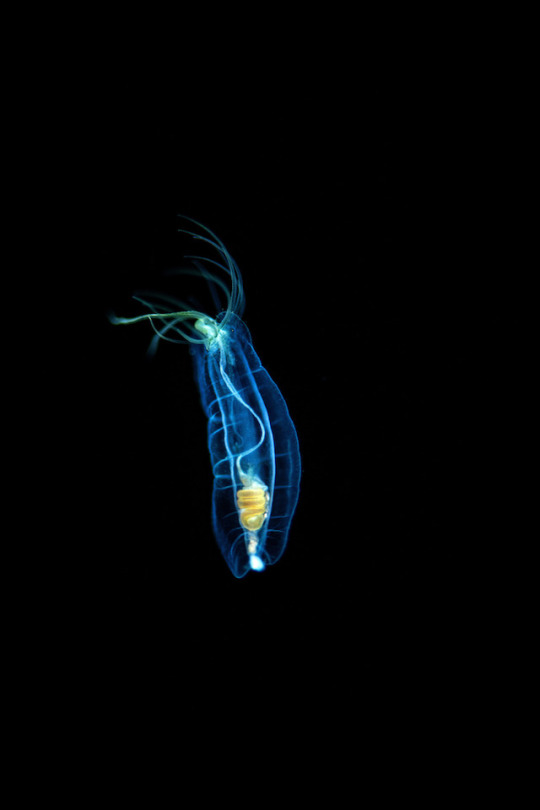
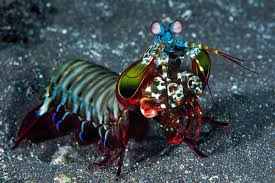
#🍵 mito's rambles°。 ⋆⸜#aquarium asks !!#sleeper shark#pacific sleeper shark#somniosus pacificus#balloon worm#poeobius meseres#peacock mantis shrimp#peacock shrimp#mantis shrimp#odontodactylus scyllarus#whale fall
6 notes
·
View notes
Photo

Peacock mantis shrimp (Odontodactylus scyllarus).
WhitcombeRD / Getty Images
#whitcomberd#photographer#getty images#peacock mantis shrimp#shrimp#crustacean#marine#odontodactylus scyllarus#nature
20 notes
·
View notes
Text
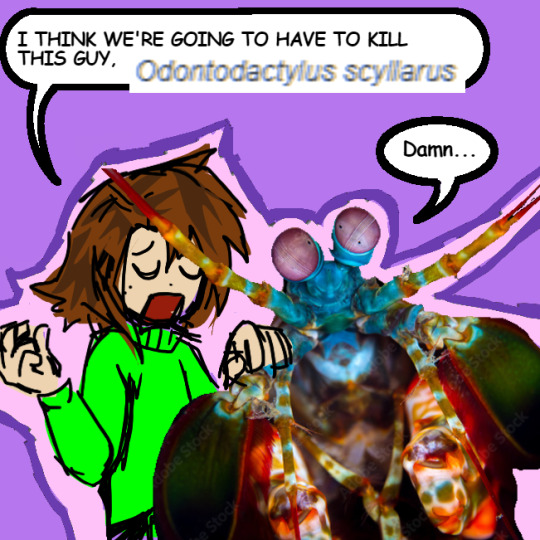
I had to join in.
#odontodactylus scyllarus#the only word i can always spell#art#my art#damn#i think were going to have to kill this guy#meme
3 notes
·
View notes
Text
15 superbes animaux étonnants et plutôt insolites
Nouvel article publié sur https://www.2tout2rien.fr/15-superbes-animaux-etonnants/
15 superbes animaux étonnants et plutôt insolites

#Agalychnis_callidryas#Atheris hispida#Chlamyphorus truncatus#colibri#crevette#dragon#dumbo#Euspinolia militaris#fennec#fourmi#Glaucus atlanticus#grenouille#Grimpoteuthis#limace#mandarin#Moloch horridus#moro sphynx#Odontodactylus Scyllarus#okapi#panda#papillon#Paradisaea apoda#paradisier#pieuvre#poisson#rainette#Scarus coeruleus#serpent#sphinx#squille
0 notes
Text

Peacock Mantis Shrimp (Odontodactylus scyllarus) with eggs, family Odontodactylidae, Tulamben, Bali, Indonesia
photograph by Ronen Avigdor
895 notes
·
View notes
Text

Behold! Alien life. 😱Just kidding: it’s the peacock mantis shrimp (Odontodactylus scyllarus)! This strange-looking critter just so happens to have one of the fastest recorded punches of any living animal, clocking in at 50 miles per hour (80.5 km/h) to crush the shells of its prey. Beyond its powerful punch, it also has some of the most advanced eyes, with the ability to process ultraviolet, infrared, and polarized light! It can be found in the warm waters of the Indo-Pacific Ocean.
Photo:julianhsu, CC BY-NC 4.0, iNaturalist
#nature#natural history#animals#peacock mantis shrimp#did you know#fact of the day#cool animals#marine biology#marine life#ocean life#shrimp#mantis shrimp
907 notes
·
View notes
Text

Peacock Mantis Shrimp (Odontodactylus scyllarus)
Habitat & Distribution
Generally resides in coral reefs and sandy flats, at depths up to 3 m (9.8 ft)
Found throughout the Indo-Pacific, from the eastern coast of Africa to the Phillipines
Physical Description
Weight: 12-90 g (0.4-3.2 oz)
Length: 10-38 cm (4-15 in)
Peacock mantis shrimp are extremely colourful; the main shell is mottled green and blue, and the legs are red
On either side of the head are large, green, fan-like structures called antennae scales, and the head itself is blue with purple eyes
Behaviour
Peacock mantis shrimp hunt their prey by ambush, and use their powerful claws to smash the shells of mollusks and crustaceans
They reside in underground burrows, which they defend fiercely
Peacock mantis shrimp can be prey for large fish, cuttlefish, squid and octopus
Key Advantages
The peacock mantis shrimp has an extremely fast punch, reaching speeds of 80 kph (50 mph); its limb accelerates at 100,000 m/s2 (330,000 ft/s2) which creates momentary bubbles of boiling water
The exterior of their clubs are made of hydroxyapatite, an extremely hard and dense material
They can swim at speeds of up to 1 m/s (3.2 ft/s)
Photo by Cédric Péneau
148 notes
·
View notes
Note
What would you say your favorite marine crustacean is? + some info on them if you feel like it
Giant Isopods are probably my favorite (see my recent post here),
A close second is literally any kind of shrimp.
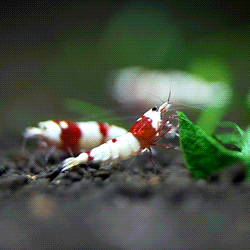
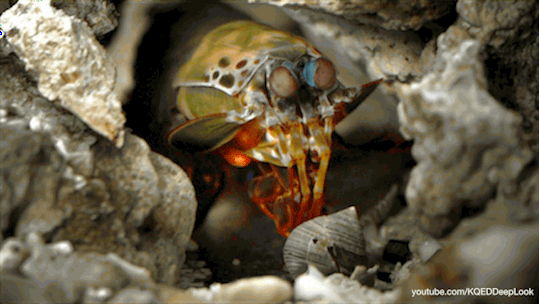
Crystal Red Shrimp (Caridina cf. cantonensis) and the Peacock Mantis Shrimp (Odontodactylus scyllarus).
There are approximately 3,000 species of shrimp. They can be found in any ocean and there are even some freshwater species!
#marine biology#animals#animal facts#biology#science#marine life#wildlife#ocean#fun facts#marine ecology#shrimp#shrimps#peacock mantis shrimp#mantis shrimp#isopod#isopods#giant isopod#giant isopods#animal gifs#sea#sea animals#sea life#sea creatures#cute animals
141 notes
·
View notes
Text
Consider making a case 53 sona... all the introspection with half the stakes, plus you get to invent a Creatchure!
Personally, if Doctor Mother isekai'd me I might become either Overgrowth (plant shapeshifter) or Scylla (basically like, if a bnha mutant quirk was based on a peacock mantis shrimp. creds to @thesternest for inspiring me to lean into Shrimp. i won't step on your toes if you want to use the idea yourself though).
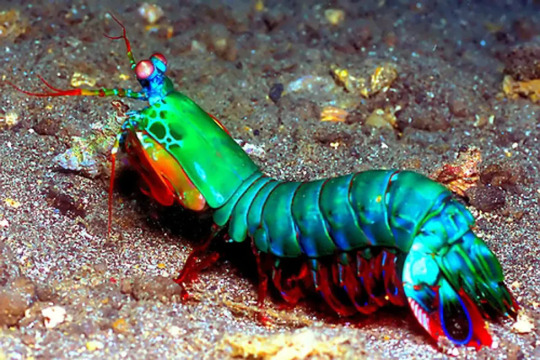
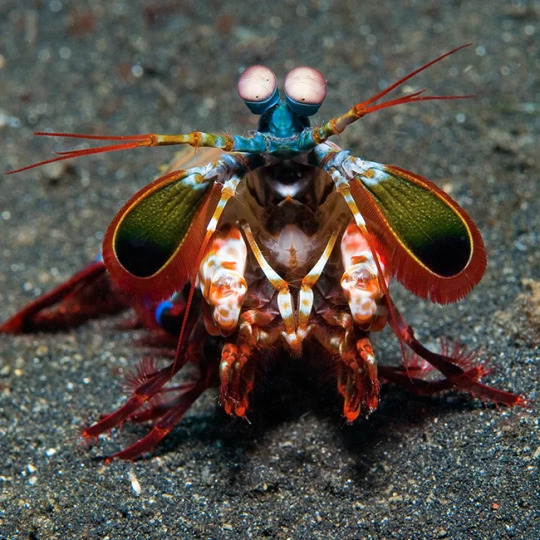
scylla's like this kinda! and she can concussive blast you!
I KNOW y’all have thought about it, but realistically, what would your shard power be? I would love to be a tinker, I basically am already, but this is what I think my power would be:
I can stop time for the entire universe, everything stops except me. I can walk around, do whatever I want, and time won’t continue until I want it to. Anything I’m holding also continues in time just as I do, (a book, a computer would still run on wifi, a gun works, ect) I can still age when I use my power, which is the big downside. I will most likely age much faster than others, I think it’s a well rounded power, and I can also think of a couple experiences that would trigger this type of power. It seems strong, but I can’t affect anything other than what I’m touching when I activate my power, so it’s not too OP.
I wouldn’t even be a cape, I would just spend time recharging.
Anyway anybody else thought of what their power would be?
#overgrowth is changer/brute with shaker capabilities if she taps into a forest & scylla is shaker/blaster (sound manipulation)#'cause why not multiclass?#if sonas/SI's aren't for self-indulgence then what is!#both are low to mid-range in general power and combat ability#with one Special Attack. scylla's concussive blast & overgrowth's So You're In A Forest That Hates You#i actually have to work out the limitations of scylla's power a lot more. can c53s get powers besides their physical mutations?#surely yes; evidence being clairvoyant?#anyway#vibes ocs#scylla#overgrowth#also scylla's name is from odontodactylus scyllarus! peacock mantis shrimp name :>#and overgrowth's whole thing is that she's slowly ship-of-theseusing herself. uh. that got long#SIs be upon ye <3#Yes I have thought about a realistic shard-power (in my case if a pivotal event turned out differently) but no it won't go on the Internet.#parahumans#powergen#time power sounds epic btw#reminds me of the reasons one of my friends would always pick super-speed#in a Choose Your Powers hypothetical
74 notes
·
View notes
Text

[poseidon’s full username is odontodactylusscyllarus
odontodactylus scyllarus - peacock mantis shrimp]
#geek mythology#greek mythology au#greek mythology#hades#hades greek mythology#hades greek god#poseidon#poseidon greek mythology#poseidon greek god#zeus#zeus greek mythology#zeus greek god#fake social media#fake twitter
36 notes
·
View notes